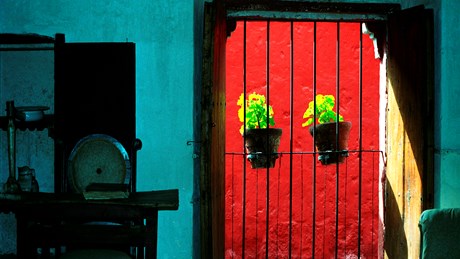I was welcomed by my future in-laws who were unwelcome in my own country.

My future father-in-law perched on his knees, balancing a spoon of goo in the air and waiting for me to open my mouth. “Sarita, pro … bá … lo,” he encouraged. My Spanish was weak, but I knew he was saying “Try it.”
“Don’t worry, Sarita. Is fine,” my future mother-in-law assured me in measured English. I looked at this Guatemalan couple, so concerned about a cough I’d developed visiting their country that they’d immediately whipped up a homemade concoction for me. I wished Billy, their son and my boyfriend, were there to translate or tell them to stop. But his status as an undocumented immigrant precluded international travel since he would not be allowed back into the United States once he left.
So I was on my own. I closed my eyes, opened my mouth, and swallowed the mixture his dad kindly offered.
I first met Billy’s parents en route to a city several hours away, where I was headed to learn Spanish for the summer. They greeted me with flowers. They welcomed me into their home, offered their bed for a post-flight nap, and warmed me with deliciously sugared coffee. They even volunteered to drive me to the bus station and help me find my way to my final destination.
Since dating an undocumented immigrant, I’d begun to recognize the prevalence of anti-immigrant sentiment in the US, particularly toward arrivals from south of the border, including Guatemalans. Now I was wrestling with the realization that my future in-laws would likely not receive the same warm welcome in my country as they had extended to me in theirs.
This same tension is the driving force behind the story of the Good Samaritan, Christ’s familiar parable in Luke 10 about a passerby …
Source: Christianity Today Most Read